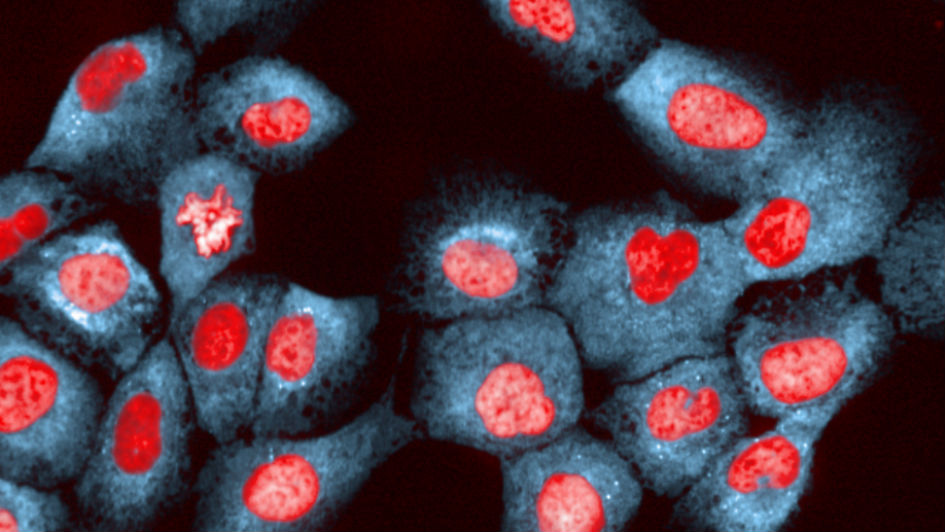
Image: Breast epithelial cells under ER stress (Professor Chris Bakal, ICR, 2014)
In the 1990s, scientists at The Institute of Cancer Research identified the breast cancer 2 gene, BRCA2, and mutations in it that greatly increase the carrier’s risk of developing breast cancer and other cancers.
The discovery of the BRCA2 gene has enabled families with a history of breast, ovarian and prostate cancer to be assessed for future risk, and where necessary offered preventative measures or close monitoring.
It was also a critical step in the development, 10 years later, of a novel form of therapy targeted at BRCA associated cancers.
Sequencing technology advances
Scientists knew that that breast cancer was common in some families and research groups around the world were searching for a genetic basis. Advances in DNA sequencing technologies in the 1990s allowed a team working in the US to identify the BRCA1 gene by sequencing DNA from families with high rates of breast cancer and identifying mutations that occurred in multiple families.
This was a huge step forward, but the statistics suggested that there was a significant amount of hereditary breast cancer not linked to the BRCA1 gene and the search for a second breast cancer gene (BRCA2) began.
A team of researchers at the ICR led by Professor Michael Stratton and including Dr Richard Wooster and Professor Alan Ashworth set out to identify BRCA2.
DNA from families affected by breast cancer that did not contain mutated forms of the BRCA1 gene was examined for mutations that recurred in the same region of the DNA in these patients, but were not found in the DNA of 500 unaffected women.
They initially narrowed the search down to a particular region of chromosome 13, and then went on to successfully identify the BRCA2 gene in a discovery that was published in Nature in 1995.
We now know that one in fifty women with breast cancer possess a faulty BRCA gene, and women with certain mutations in the genes can have well over a 50% chance of developing breast cancer by the age of 70.
Mutations in the BRCA genes are now associated with a range of cancers including breast cancer in women and men, ovarian, fallopian tube, prostate, pancreatic and lung cancers, and malignant melanoma.
References
Wooster et al. (1994) Localization of a breast cancer susceptibility gene, BRCA2, to chromosome 13q12-13, Science. 265 (5181), 2088-90. DOI:10.1126/science.8091231
Wooster et al. (1995) Identification of the breast cancer susceptibility gene BRCA2, Nature 378, 789 – 792. DOI:10.1038/378789a0